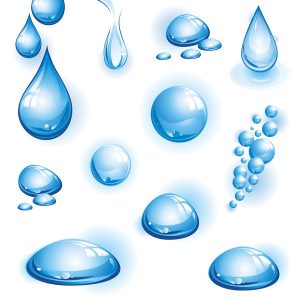 Corrosion is one of the great enemies of the pipes in a plumbing system. It is the main cause of leaks in residential plumbing, since it weakens pipe metal to the point where leaks will start up in multiple places. Eventually, the corrosion will destroy the pipe entirely.
Corrosion is one of the great enemies of the pipes in a plumbing system. It is the main cause of leaks in residential plumbing, since it weakens pipe metal to the point where leaks will start up in multiple places. Eventually, the corrosion will destroy the pipe entirely.
“But I have copper pipes for my home. Copper doesn’t corrode.” Sorry to tell you this isn’t correct. Copper is a corrosion-resistant metal. But the same way that a water-resistant watch isn’t the same thing as a water-proof watch (you don’t want to dunk your watch down in a pool if it’s only water-resistant), a corrosion-resistant metal is not 100%-free from the effects of corrosion. There is a specific type of corrosion that affects copper pipes, and it’s the principal cause of leaking starting in these pipes.
Meet “Pinhole Leaks”
We’d rather you didn’t have to meet pinhole leaks at all, and once you find out what they are, we’ll think you’ll agree. But the unfortunate reality is that pinhole leaks are common in modern plumbing systems. You may have to deal with them at some point, so it’s best to find out about what they are now.
As the name indicates, pinhole leaks are tiny holes that open up along pipes, allowing small amounts of water to escape. There isn’t anything such as a “minor” leak in plumbing, however, and pinhole leaks can be extensive enough to lead to significant building material damage. And pinhole leaks spread! That’s because what causes them is formicary corrosion, the specific kind of corrosion that affects copper pipes.
Formicary corrosion is caused by organic acids such as formic acid (hence the name) and acetic acid. These chemicals are found in the air in most homes and come from sources such as glue, insulation particle board, cleaning solutions, paneling materials, latex paints, plywood, personal care products, and vinegar.
As you can imagine from that list, it’s hard to prevent formicary corrosion. It’s also difficult to detect the pinhole leaks it creates with the naked eye. The corrosion develops in small patches that can show up as discoloration along the pipes. These patches of weakened copper will soon begin to develop pinhole leaks.
When formicary corrosion strikes in a home, it often affects the copper lines and coils in the air conditioning system first because of how thin the copper is. This leads to refrigerant loss. If you have this problem with your cooling system, we suggest you call on a plumber in Burlington, VT to do leak detection to find if you have hidden pinhole leaks elsewhere. (Lucky for you, our team handles both plumbing and air conditioning service!)
Although formicary corrosion is a problem for copper pipes, we still strongly recommend replacing older piping materials such as cast iron and galvanized steel with copper or plastic pipes. These older materials can suffer from many types of corrosion and will start to leak years before copper wears down.
Stop those pinhole leaks with the help of Red Rock Mechanical, LLC. We’ve served Northwest Vermont and Northeast New York for more than two decades.







